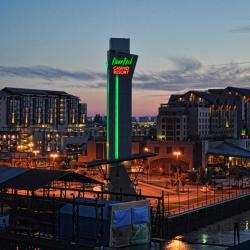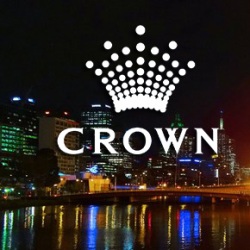British Columbia Targeting Money Laundering at Casinos

The British Columbia gambling industry generates billions of dollars for the province each year, with government data placing the figure at $2.3 billion between 2014 and 2015. As well as being a valuable source of income for the government, and entertainment for the public, it appears that have also increasingly been used for money laundering purposes by criminal enterprises in recent years.
Investigation
Canada’s westernmost province has 17 legalized casinos and 18 community gaming centers across its territory that bring in thousands of gamblers and millions of dollars on a daily basis. Nevertheless, money laundering suspicions first arose after the provincial Gaming Policy and Enforcement Branch discovered that a massive $13.5 million in Canadian twenty-dollar bills was spent at the River Rock Casino within a single month. The previous Liberal government subsequently ordered an internal investigation into these suspicious findings, with the regulator’s investigation also revealing that untraceable amounts of money were regularly being dropped off by unknown individuals at various casinos in British Columbia..
Money Laundering Confirmed
The ex-deputy Commissioner of the Royal Canadian Mounted Police, Peter German, was tasked with leading the investigation and preparing a detailed report about what recommendations could be suggested for addressing the problem. After conforming the allegations, German’s submitted his report in September to the current NDP government in which he highlighted that it was VIP gamblers from Asian countries that particular needed to be observed. He is expected to submit his final report on the issue by March of 2018.
VIP Gamblers Concerns
China began an anti-corruption drive in 2014, with Macau, the world’s largest gambling destination, and its VIP gamblers one of the main target of the campaign. Asian VIP gamblers account for over half of the gross gaming revenue (GGR) in Macau, but the VIP segment collapsed following the crackdown, leading to losses of over $100 billion dollars for Macau’s casinos as VIP gamblers moved elsewhere. Macau’s industry has since returned to impressive growth once more, after Macau’s crackdown eased off in late 2016.
Meanwhile, Chinese VIP gamblers avoiding Macau moved on to countries with less stringent gaming regulations, and it’s believed that many of them now gamble in British Columbia in order to launder their ill-gotten money through the province’s casinos.
New Regulations Introduced
German’s report recommended that two new regulations be introduced so as to prevent money laundering, and now gaming regulators have confirmed these regulations will be implemented as soon as possible.
As a result, the Gaming Policy and Enforcement Branch (GPEB) will soon require BC casinos to collect personal and financial information from players betting over C$10,000. In addition, casinos will ask for identification and banking details of their customers, and where their money comes from. Customers that continue to make high value transactions will then be subjected to a deeper level of scrutiny, and be required to provide more information.
The second recommendation was that the GPEB increases accountability at casinos by appointing gaming overseers, with the regulator having now confirmed that it will either hire new employees or train existing ones before placing them in plain sight at BC casinos. They will also put an emphasis on finding employees that are able to speak Mandarin given that Asian gamers are deemed to be the ones most likely to be involved in money laundering activities.
As BC Attorney General David Eby subsequently explained in a statement released recently: “Our government has made clear the urgency around addressing issues of money-laundering at B.C. casinos, and we will ensure these first two recommendations are not only implemented as soon as possible, but enforced on the ground.”
Casino Revenue May Decline
These two recommendations may well end up scaring VIP gamblers away from BC casinos, and the government has accepted that GGR may decline as a result. Similarly, casino operators in BC, who are heavily dependent on VIP gaming, understand that this may end up negatively impacting their business.
The government decided, however, that there was no choice but to go ahead with the crackdown on VIP gamblers in order to ensure that British Columbia and their casinos are kept safe from a range of criminal activities, and in particular money laundering.








